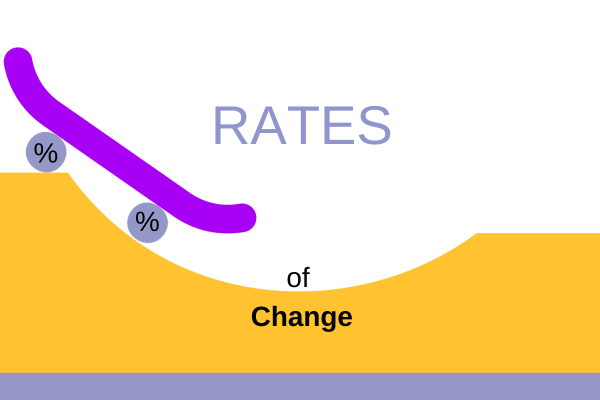By Jan Allen
•
October 3, 2024
The news on the street says you no longer have an obligation to pay a buyer’s agent. I know that a few sellers of mine called me up and were initially excited about this news, but is this ruling a good thing for sellers? Let’s discuss the real impacts of this ruling on the real estate market and what you need to know. Until now, when a final sales price was reached, the contract price included both the listing agent’s and the buyer agent’s compensation which has always been negotiable and paid out of the buyer’s funds. Will Sellers sell their homes quicker and for higher than their list price? Can this encourage or discourage buyers from entering the marketplace? Are unrepresented buyers a risk to sellers? Are comps accurate without buyer compensation info included? What’s the impact to pricing? REVIEW OF THE NAR CHANGES: The changes that came about as the result of the NAR settlement, meant that a seller no longer was obligated to negotiate a buyer’s agent compensation from the outset. Prior to Aug 17, 2024, a listing agreement had both buyer agent and seller agent’s compensation baked in. That’s changed and now, at the time of signing a listing agreement, the seller may decide not to offer a buyer’s agent compensation. By delaying the seller’s decision to pay a buyer’s agent before an offer comes in, the buyer market has bifurcated and demand has changed because the law effectively enables the seller to pay nothing to a buyer’s agent. As the changes take effect, the impacts are just now being felt. So let’s dissect each type of buyer in a bit more detail because they all have their place. BUYER REPRESENTED BY BUYER'S AGENT: Scenario: A buyer will utilize an agent to represent them. They will have had to sign a representation agreement that states that if the seller is not going to pay the buyer’s agent, then the buyer agrees to pay their agent’s brokerage directly. Note: This mimics the way that real estate was operating before the changes EXCEPT now, the buyer is required to sign the Buyer Representation agreement before showing a property. Impact: In this situation, the buyer is being represented by their own agent whose sole purpose is to protect, inform, and advise the buyer during the complete process. If the seller chooses not to pay a buyer’s agent compensation, the buyer may not be able to afford to purchase the home because a lot of times the out-of-pocket cash may be limited. Remember that in the old scenario - the buyer in essence was funding the compensation through the contract price and the amount, less down payment, was rolled into their loan. DUAL AGENCY: Scenario: A buyer approaches the listing agent at an open house (very common) and says, “hey, can you represent me and write an offer?” The listing agent gets all the buyer’s financial data for the offer and knows how much they are willing to pay for the house after also knowing why the seller is selling and what they will ultimately take. This scenario usually works best with very experienced buyers and sellers. Note: The listing agent and all parties agree, in writing, to dual agency. This means the listing agent may be incentivized by possibly receiving two compensations. Agent has a brokerage agency relationship with both the buyer and seller and owes his/her full fiduciary responsibility to both parties. Fiduciary duties are legal obligations that require an individual to act in the best interests of another party and not their own interests. This includes: loyalty, confidentiality, good faith, disclosure, duty of care, obedience and accounting equally. The agent cannot advise either party about an Offer or Counter-Offer and can only referee during conflicts. The agent provides the appropriate forms for real estate, but not providing any advice to either party in filling them out, advice regarding inspections, etc. Impact: When buyers and sellers are not advised on a transaction, there’s a risk of a lawsuit. UNREPRESENTED BUYER Scenario: A new buyer thinking, “How hard can this be? I look at Zillow…” approaches the listing agent and says that they want to put in an offer and “No,” they don’t have an agent nor do they want one. The listing agent hands over many pages of the requisite State required forms for the offer and then once in contract, supplemental documents and disclosures. Note:: The buyer has questions about what certain items mean, but by law, the listing agent IS NOT ALLOWED to advise the unrepresented buyer. You have to remember, that in this scenario, the listing agent’s fiduciary responsibility is ONLY to the Seller. The buyer, not really knowing what he/she is doing, provides a failed attempt at an offer to the listing agent who may determine that there’s no good way to counter it because of problems with conflicting information, missing information, etc. In that case, the listing agent may want to work with the Seller and write an offer that the Seller would accept and provide it back to the Buyer. In other words, the listing agent is only considering the seller’s needs, wants, and desires and now also may have buyer’s confidential information that the seller can use to his/her benefit only. The buyer accepts, counters, or walks away. Impact: Potential lawsuit. If the parties get into contract, the buyer has no one to guide him in this transaction. The Seller and the Listing Agent provide the documentation but are not allowed to provide advice leaving the buyer without the good counsel to make sound decisions that are necessary and important with regards to purchasing a home that could easily cost half a million dollars to multi-millions of dollars. This is reminiscent of how buyer’s agency came along - Easton v. Strassburger. Last week's overview of NAR Settlement Other Impacts of not paying a buyer’s agent compensation Scenario: The offer comes in and there’s an offer price and a request for the seller to compensate the buyer’s agent. Note: The Seller has some choices: Accept the request as stated in the offer. The offer will show how much they are asking the seller to pay which is usually a percentage. Counter the request to a lower amount or counter stating that NO COMPENSATION will be paid. Impact: In this situation, the buyer is being represented by their own agent whose sole purpose is to protect, inform, and advise the buyer during the complete process. If the seller chooses not to pay a buyer’s agent compensation, the buyer may not be able to afford to purchase the home because a lot of times the out of pocket cash may be limited. Remember that in the old scenario - the buyer in essence was paying the commission through the contract price and the amount, less down payment, was rolled into their loan. Some of the more common Impacts: Reduced buyer pool. Buyers may be discouraged by not being able to afford to pay their agent out of pocket, which could reduce the number of potential buyers for the home. This could be especially impactful for first-time homebuyers who are often already struggling to secure sufficient funds to purchase and pay for their closing costs. Skewed pricing and valuations. Some sold prices will include the buyer’s agent compensation where the seller paid and some prices won’t. This matters when agents are using comps to price your home and appraisers are valuing the property. Lower home prices. Due to the reduced number of buyers, the lower demand may dictate lower net profit for sellers. (Classic Supply and Demand) Competitive disadvantage. All sellers are competing with the same pool of buyers so if one seller is offering buyer’s agent compensation, then that seller has the upper hand with buyer Stories are starting to come out about how this is playing out. My Transaction Coordinator was privy to a listing where two offers came in, both asking for the seller to pay the Buyer’s agent’s compensation. The seller countered with NO OFFER OF COMPENSATION. Both offers walked! REMEMBER….real estate is a constantly changing Industry. Even highly experienced buyers are not able to stay on top of the evolving laws, rules, regulations and market changes in order to be well informed. That doesn’t even include that there are a myriad of issues that easily arise in most transactions that require considerable time and effort to evaluate and resolve satisfactorily without potential penalties (such as a buyer or seller breaching the contract in any way which would put buyer and/or seller at risk). Hopefully, this has given you some food for thought. Historically, the buyer’s funds have paid for both agents’ compensation in the contract price. As with all change, not all changes are good without assessing areas of risk. Seller Beware Next up is what buyers need to know... ************************************************ Some Good News on Interest Rates!!!! The Fed just lowered the interest rate by half a point and have indicated that they will do an additional two more rate reductions by year end..




















